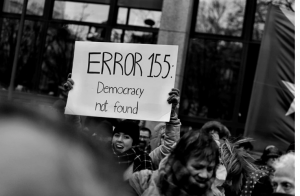Democracy in the World
 Unlike western democracies that were formed by an amalgamation of nations, most states with young democracies were shaped essentially from the dividing of whole areas. The implication here is that a country shaped from a conglomeration of nations might need to negotiate widely and make compromises to guarantee the survival of its own unity.
Unlike western democracies that were formed by an amalgamation of nations, most states with young democracies were shaped essentially from the dividing of whole areas. The implication here is that a country shaped from a conglomeration of nations might need to negotiate widely and make compromises to guarantee the survival of its own unity.
Though trade relations aren’t always retrogressive on growth, these fundamental authorities were endowed with fantastic abilities and dominance giving space for the misuse of power that disturbs them until date. Founded in developing countries in South America, the Middle East, Africa, Asia and Eastern Europe hasn’t been effective, not because those states don’t have competent governments to govern these, but chiefly as a consequence of the manner these nations were created.
Democracy came to imply a lot of elites carrying the entire governmental system hostage and making certain one of the kin and type has to make the rules with absolute power. These fundamental authorities got so strong they each policy enacted became a recipe for corruption and following military coups.
The problem hasn’t been a lack of federal good will or the unavailability of specialists. Unfortunately, their intellectuals and specialists are relegated from active involvement in the democratic process as policy arguments rarely include in academic arenas. Industrious minds are hijacked from the political strategy and are made to obey clumsy associations.
Impact of Cultural Differences
Although cultural differences may have had any impact in stalling democracy in a number of these nations, civilization is so insignificant a variable to have triggered such extreme failures seen around the globe. The diversity in civilization that’s a natural democratic base is barely utilized to market democracy. Cultural differences have been exploited and controlled by some people for selfish motives.
In such countries in which the whole population appears to work for some so called elites, remunerations into the masses aren’t viewed as adequate payments announcing the hard work that the people today provide, however as charity and also a reward for dedication.
The implementation of public contracts paid for by taxation from the people is thought to be a present and contributed to areas exhibiting the maximum loyalty and submissiveness to the regimes. The same as the system, the present power structures are urgently designed to unite a remain in energy than make life simpler for its citizens.

